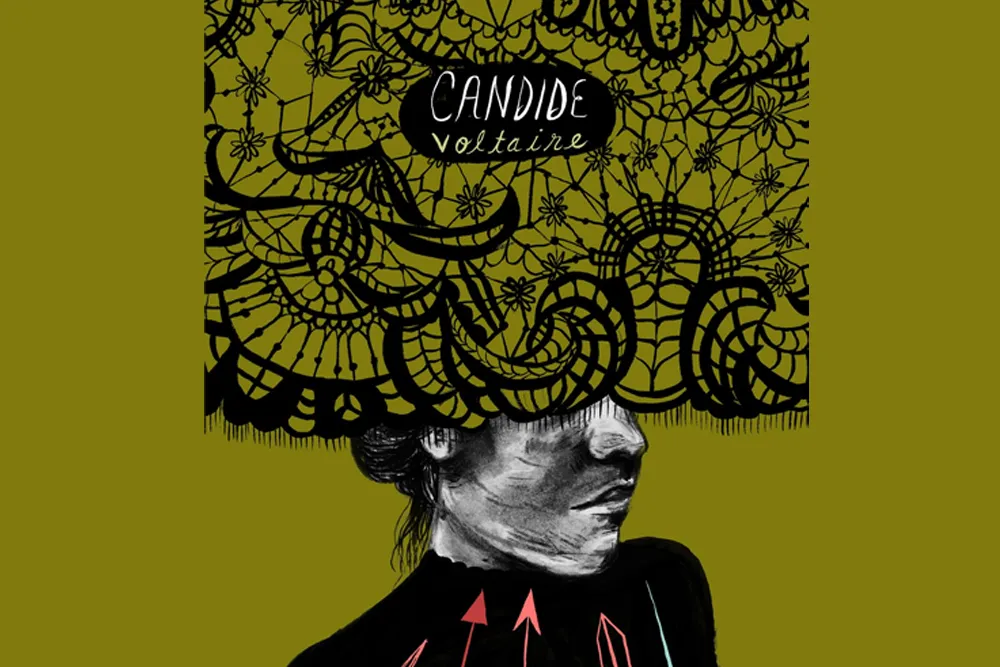In this satirical novel written in 1759, Voltaire took on philosophy of Optimism, burnt it down, reduced it to nothing more than charcoal and ashes and then used that ash in a more meaningful way instead of just blowing it in the wind.
“Everything happens for a good reason”— this line of thinking perhaps can be good for individuals. Specially to give the wretched and desperate some hope. If it helps an individual to rekindle their dousing fire, I’m not monster enough to paint logic all over that. Being content is something I value highly after all.
But as a school of philosophy, Leibnizian Optimism and determinism do not make sense to me. I was surprised this is the same Leibniz who invented calculus separately (yes, that one with a famous bout with Newton). He was a logician, a mathematician and he proposed that everything in the world is perfect and if it wasn’t, God wouldn’t make it so. Whatever is imperfect in the world, is imperfect in all the possible worlds.
This is only wishful thinking and can lead your life astray if you keep following that doctrine blindly. If everything happens for good reasons, all crimes should be exonerated and no one can really be held accountable. Nor can you feel any remorse or guilt. Above all, the injustice of the world goes unanswered with legitimate gait. The ones caused by humans, and the ones caused by the mother nature — both.
In this tale, Candide is a royal bastard with a teacher who teaches Leibnizian Optimism. Everything that happens has a good reason— he doctrines the idea into Candide. Then Candide is forced on a life’s journey that slowly and painfully cleanse off that poison of optimism.
He gets thrown out of the castle. Then that kingdom gets overrun by enemies. His lover, and the princess of the royal court gets raped, disemboweled, along with all of her family members. His optimist teacher gets syphilis, still pretty much optimist about it. Hey, thanks to syphilis, you have coffee. See, good reasons! Then they both get caught by another army, tortured and almost put to death. Thanks to a massive earthquake, the city gets destroyed but Candide survives.
He learns that his lover survived the massacre and now shares beds of two powerful men who take their turns. Candide commences on a journey to rescue her. But fate was not ready to smile upon him just yet.
In fact, in the entire book, which is a roller coaster by the sheer number of events that take place one after another, Candide is thrown to one misfortune to another. And Voltaire wasn’t holding anything off, literally! I’m pretty sure, in whatever ways you can think life is capable of imposing misfortunes and torturing someone, Voltaire will out do all of your expectations and imaginations. Candide and his companions get beaten, chased, burned, thrown into cells, robbed, cheated repeatedly and then there are drownings, earthquakes... you name it.
The question isn’t whether someone can actually go through all of that and still live, Voltaire is essentially mocking with all of his penmanship. No, all that happen, do not happen for good reasons. Yes, they banned the book upon its release— complaining it’s provocative and with satire, Voltaire attacked his fellow intellectuals. Well, duh!
You might think with all that disasters going on one after another, the book is bleak. On the contrary, you won’t find a more humorous, dark tale anywhere. It’s every bit enjoyable as a work of humor alone. I could even tell from the style that the novel is not really trying to hide its metaphors, rather it boasted them in myriads of ways. As if it’s passively saying— hey, it’s a satire piece, buddy, read it so!
At one point Candide reached a land of legend, El Dorado, where even the sandy beaches are filled with jewels. That mythical utopia had everything as perfect as things can be. But it also couldn’t hold Candide. My guess is, Voltaire used that mythic utopia to offer some counter perspectives of the very same optimistic idea.
But as I said in my opening paragraph, he doesn’t bury or washes off optimism completely. He only ridicules it enough to nullify its absurd reasoning. Voltaire’s ideas are much more practical and logical and he almost reluctantly offers them. I think as a modern man, all of us have that sense of pragmatism now within us now — I don’t need to elaborate anything.
The book is relatively small but absolutely fast paced and incredibly enjoyable. You can race through it in one evening.
Happy reading if you’re into this sort of thing!

About Me


Twitter - https://twitter.com/not_a_c1nephile
Youtube - https://www.youtube.com/channel/UCg3TwYk--HKIsRmnvhob1Mg
